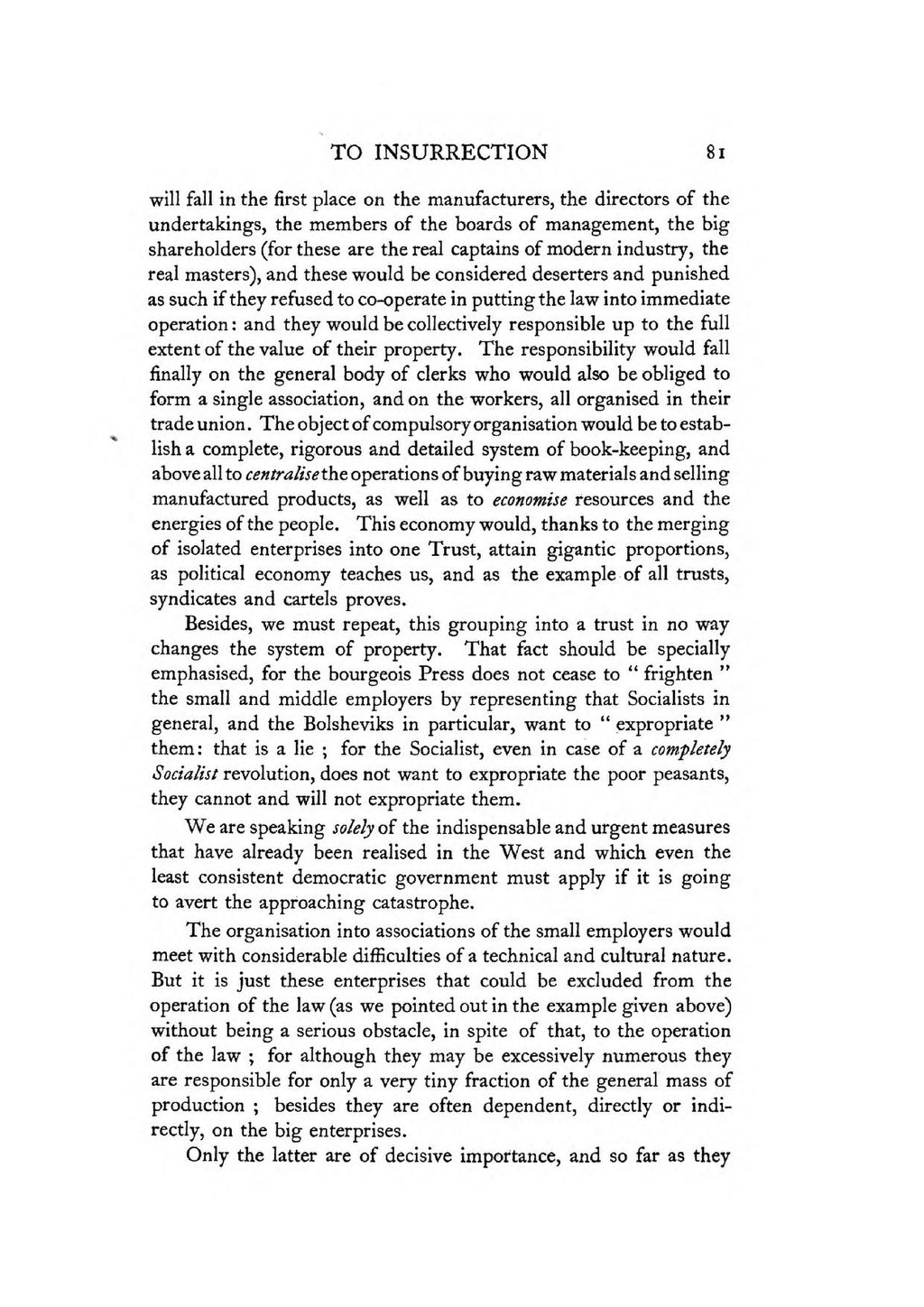will fall in the first place on the manufacturers, the directors of the undertakings, the members of the boards of management, the big shareholders (for these are the real captains of modern industry, the real masters), and these would be considered deserters and punished as such if they refused to co-operate in putting the law into immediate operation and they would be collectively responsible up to the full extent of the value of their property. The responsibility would fall finally on the general body of clerks who would also be obliged to form a single association, and on the workers, all organised in their trade union. The object of compulsory organisation would be to establish a complete, rigorous and detailed system of book-keeping, and above all to centralise the operations of buying raw materials and selling manufactured products, as well as to economise resources and the energies of the people. This economy would, thanks to the merging of isolated enterprises into one Trust, attain gigantic proportions, as political economy teaches us, and as the example of all trusts, syndicates and cartels proves.
Besides, we must repeat, this grouping into a trust in no way changes the system of property. That fact should be specially emphasised, for the bourgeois Press does not cease to "frighten" the small and middle employers by representing that Socialists in general, and the Bolsheviks in particular, want to "expropriate" them that is a lie; for the Socialist, even in case of a completely Socialist revolution, does not want to expropriate the poor peasants, they cannot and will not expropriate them.
We are speaking solely of the indispensable and urgent measures that have already been realised in the West and which even the least consistent democratic government must apply if it is going to avert the approaching catastrophe.
The organisation into associations of the small employers would meet with considerable difficulties of a technical and cultural nature. But it is just these enterprises that could be excluded from the operation of the law (as we pointed out in the example given above) without being a serious obstacle, in spite of that, to the operation of the law; for although they may be excessively numerous they are responsible for only a very tiny fraction of the general mass of production; besides they are often dependent, directly or indirectly, on the big enterprises.
Only the latter are of decisive importance, and so far as they
